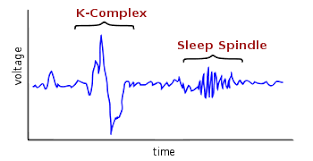
Sleep and Emotional Wellbeing
Sleep is considered as a complex reversible state that happens at regular intervals and is activated by the brain. According to restoration theory (Oswald 1966), sleep is essential for restoring vital energy and promotes tissue repair and growth.
Sleep has two main phases: REM and non-REM, with REM being the dreaming phase and has been measured in research by polysomnography techniques that include EEG, EOG and EMG.
In a whole night sleep pattern, various stages have been observed and these include the awake stage, REM stage and non-REM stage can be divided into 4 separate sub-stages which go from a drowsy state in stage one to a very deep sleep in stage 4. As we sleep we move through the different phases in a cyclic pattern occurring approximately every 90-120 minutes, with 50% of sleep time being in REM phase and the other 50% being in non-REM phase, although the REM phase appears to happen with more frequency as we get closer to waking up.
Two phasic events that occur in a sleep cycle include K complex and sleep spindles and these phasic events give insight into specific sleep variables and can change according to specific pathologies. Both occur with most frequency in stage 2 of the non-REM phase with K complex being an indicator of deeper sleep.

Other EEG wave patterns include Theta activity in the REM stage and Alpha activity in the awake stage.
There are over 70 recognised sleep disorders and lack of sleep can have an enormous affect on our physiological and psychological wellbeing. With physiological effects including higher blood pressure, higher stress, higher hormone levels, reduced immune system activity and lower cardiovascular health. Psychological effects include lower mood, higher anxiety and irritability, lack of concentration, poor performance, confusion and forgetfulness.
Sleep is very much linked to healthy emotional functioning and mental wellbeing. Lack of sleep effects in a negative way on emotional regulation and expression playing an important role in homeostasis and emotional functioning. Since emotional dysregulation is associated with sleep disorders, it is thought that the amygdala reactivity plays a prominent role in sleep disorders and that sleep deprivation weakens the connection between the prefrontal cortex and the amygdala.
Summarising we can consider lack of sleep affecting our mental health in a bidirectional manner, with mental health affecting our sleep patterns and sleep patterns affecting our mental health.
Leave a reply




Awesome post! Keep up the great work! 🙂
ReplyGreat content! Super high-quality! Keep it up! 🙂
Reply